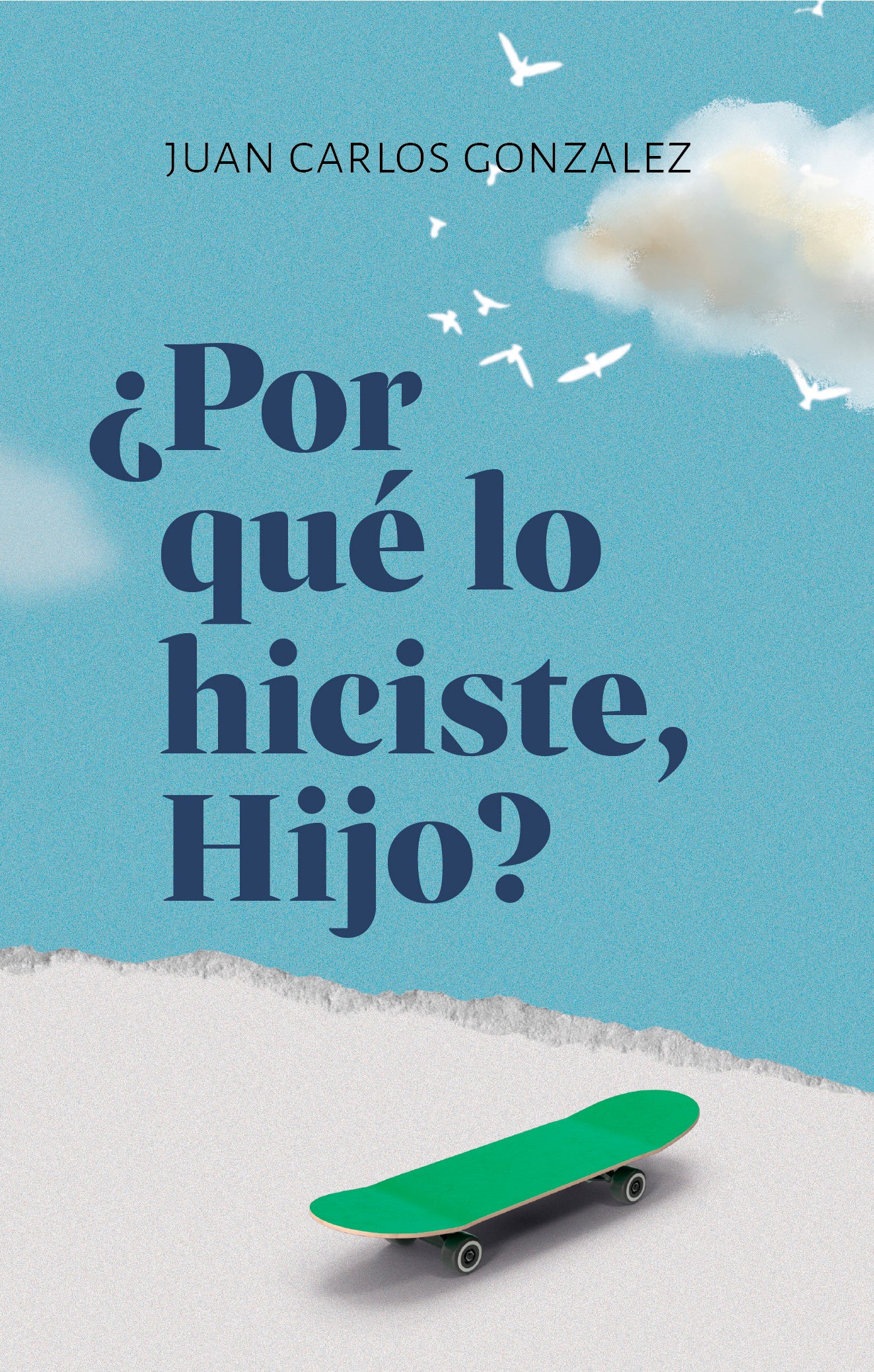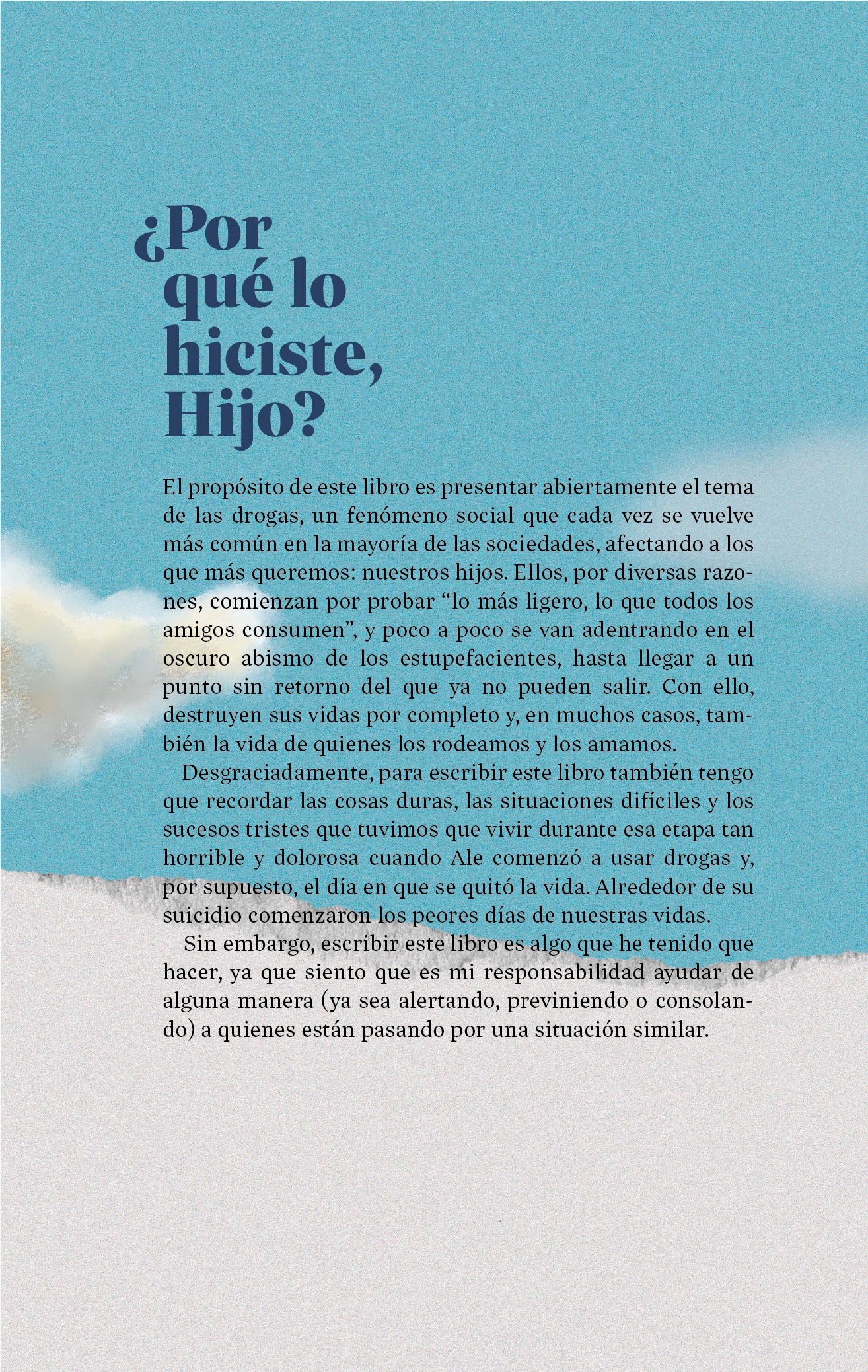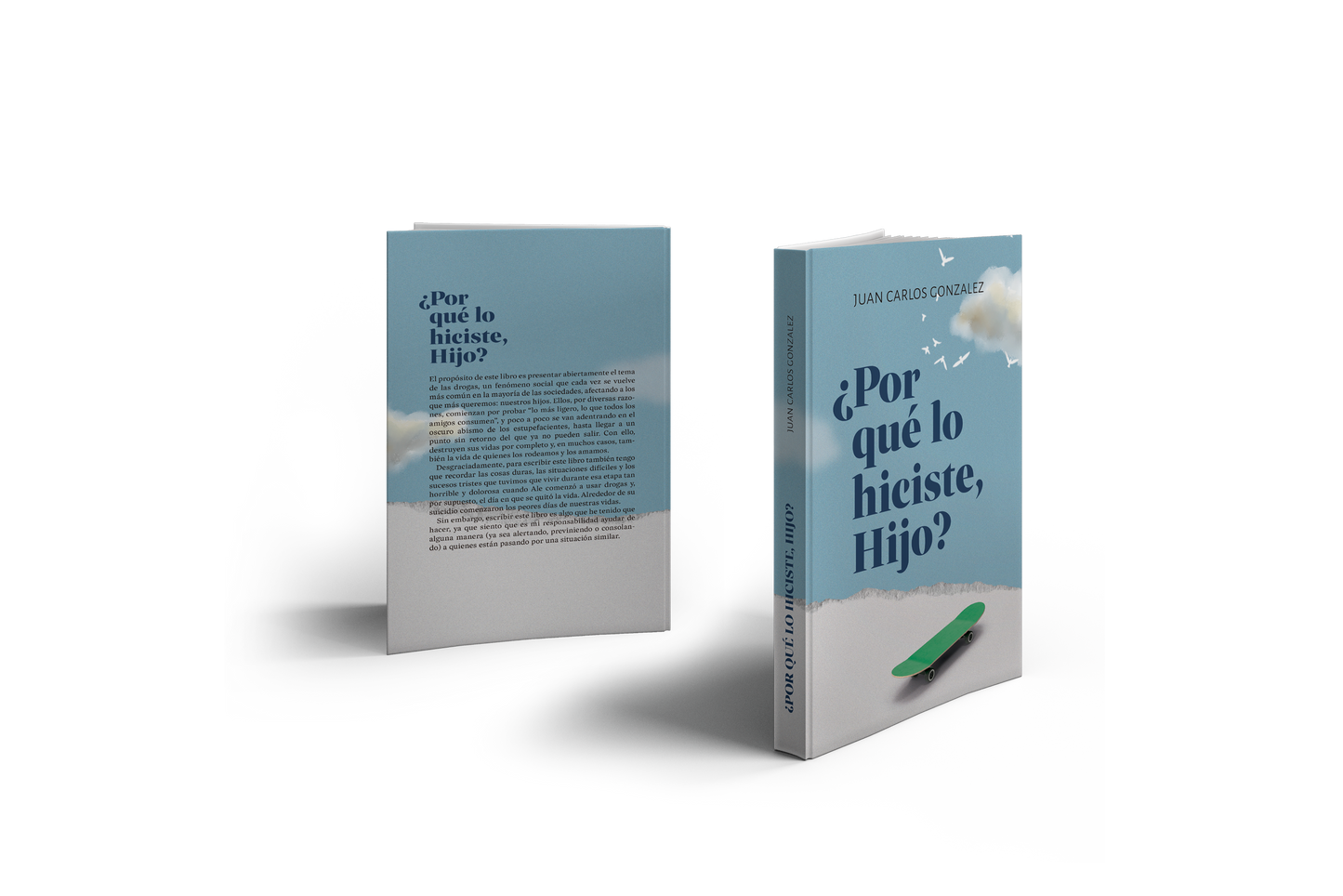juancarloscontigo
Por qué lo Hiciste, Hijo?
Por qué lo Hiciste, Hijo?
Buy on Amazon
The agony of death and loss is a profound experience to encounter; often felt at the most personal of levels. During these times of vulnerability is when we wish to keep our emotions, doubts, and fears hidden in the most sacred spaces of our minds and hearts. Yet, what if this unfathomable pain was due to the unthinkable loss of a son, or what if this was caused by the death of a son due to suicide and drugs – the wound begins to
seem too deep to heal.
This vivid and raw experience is what Juan Carlos Gonzalez narrates taking the reader to stand beside him as he and his family revisit the tragic loss of their son by suicide.
Throughout the book, Juan Carlos refers to his son with the tenderness and fondness that only a father feels, and calls him by his nickname, Ale. We begin the journey with Juan Carlos and his family as they return from an Easter Sunday celebration with friends, to a chaos of sirens, law enforcement, and a phone call that no parent ever wants to receive. This is how the world begins to be flipped upside down for Juan Carlos and his family, in an unexpected and unreasonable turn of events. After the shock of the news, we begin to travel with the family to understand how they had to cope and build resilience to continue caring for their other children, and for each other. We are taken to their living room to understand the aftermath, the rebuilding, and the reliving that had to be done. At this point, we begin to only fathom the whirlwind of emotions as the family mourns and attempts to continue to live a “normal” life.
Juan Carlos not only narrates the series of events that take the reader to the darkest of places with him, but also depicts how him and his wife met, the childhood of his son, and his own upbringing. Leaving it very clear that such a terrifying moment can happen to the most typical of families, regardless of educational level, socioeconomic status, race, and sexual orientation. He, with his own experience raises awareness to other parents and family members about the deeply intricate issues of mental health and drug abuse. All in all, Juan Carlos strives to make the reader understand how common the issue of suicide, drug abuse, and mental health concerns, really is for our youth; and provides words of wisdom that may help maneuver through such a tumultuous journey.
In addition, Juan Carlos conveys the stories of individuals who are still living with the negative consequences after living a life of addiction. He speaks about experiences of people who grew up among drugs, and after having multiple problems with dependence and addiction, they not only have been able to recover but now also help others overcome their obstacles, resulting in a sober and successful life.
In the end, Juan Carlos provides hope to those who may encounter a similar situation by learning about the importance of recognizing the signs, understanding the value of improving communication with our children, and shedding a ray of light on how to possibly continue to love, and live after such a shattering loss.






